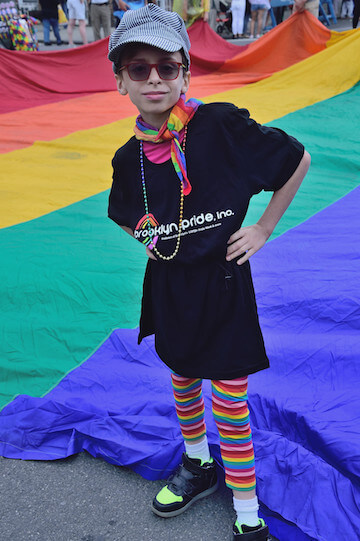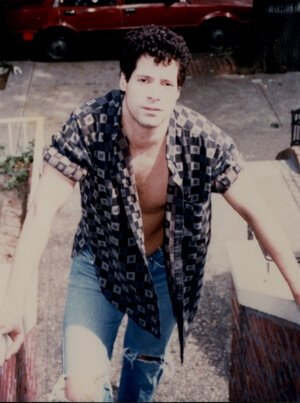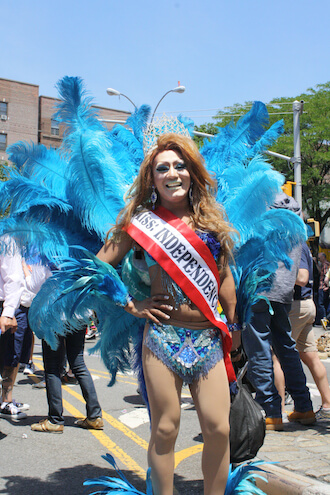What Does It Mean to Be Queer?: A Fall Arts Special. | MICHAEL SHIREY
The world is in a state of terminal overshare. Memoirs crowd the book market: recoveries from addiction and abuse to transformations from rich to poor or vice versa, all obstacles traversed. The coming out tales of celebrities and sports stars feature closets inhabited and shaken off, pain endured, lessons learned, and inspiration duly offered. Just as reality shows have edged out fiction on our TV screens so it has also proved on the page, and our appetite for reading about the travails of others, famous and not, appears insatiable.
However, if you have read James McCourt’s 2003 non-fiction “Queer Street: Rise and Fall of an American Culture, 1947-1985” — a heaving, cacophonous post-war gay history of New York — it won’t surprise you that there is very little typical in his sprawling memoir, “Lasting City: The Anatomy of Nostalgia.” Indeed, deliciously, there is nothing neat or didactically edifying about a single page of it. Unlike other memoirists, McCourt’s heart doesn’t bleed — it sings and shouts.
James McCourt’s memoir of his early years tells everything, faulty and frustrating as it is
There is — and this will delight McCourt’s fans and absolutely turn off those who found “Queer Street” an inedible curio — not a scintilla of conventionality about “Lasting City,” either in story or form. The book ranges this way and that, revealing the story of McCourt’s Irish-Catholic family — mixing fantasy and reality — and the blooming of his homosexuality on the teeming streets of New York and in its sex-sodden bathrooms. The book is a vivid tapestry of the city, its voices, characters, and smarts, populated by McCourt’s family, peers, total strangers, and a self-created phantom called Moriarty. It is a confusing, frustrating puzzle that nevertheless — through detail and eccentricity — draws you into its splintered focus. It feels epic, but reveals — save for his mother’s stroke in the early 2000s — only McCourt’s early years and the story of his family history.
LIVERIGHT/ W.W. NORTON & COMPANY
McCourt’s mother, before she died, told him to “tell everything.” At the beginning of the book, he writes, “The rule is fast: life is short and art is long, but the transformation of a life into literature necessarily prolongs it.” This memoir, told in the third person, has an importance beyond the personal. We read about his ill mother in the hospital, then suddenly McCourt, who was born in 1941, is four years old and riding the train in from Jackson Heights, “his head just above the metal panel, just able to see out of the bottom of the window, the city skyline looming up, coming closer station by station — closer… closer…” The book too bobs up and down, the past collapsing into present or further-past, incidents and shards of memory piercing then receding — of Hollywood stars, family rows, nights at the opera, and bitchy queens’ voices.
There are scattered classical and literary allusions; one verse is explained away as “conflating Virgil and Psalm 29.” McCourt’s writing — his first book “Mawrdew Czgowchwz” was published in 1975 — has been compared to Ronald Firbank, his style a flourishing, extravagant salvo of bygone times, when self-conscious high-mindedness was to be celebrated and delighted in. In “Lasting City,” a couple of paragraphs may fold in references to comedy, tragedy, high camp, Schopenhauer, Nietzsche, Batman and Robin, “Enlightenment presumption,” Wittgenstein, Beethoven’s “Fidelio,” Berg’s “Lulu,” and Mae West.
But the book isn’t willfully pretentious. It is showy, it loves hitching its many stylistic skirts, but McCourt’s memories are clear, their meanings intelligibly unpacked. A teenage McCourt writes a note to himself many of us could have: “Dear Life, I’m holding on. Love, Me.” The structure and interplay of voices and time zones will have you rifling the book’s pages, trying to place or re-place characters and situations. It’s a bit like being Alice guided and gulled in Wonderland by the Mad Hatter.
Throughout, McCourt insists the memoir form itself is unreliable, that “Lasting City” is a writer’s construct like any book: “Whatever may be cast concerning the births, lives, and deaths of himself and of the others, they all live and breathe entirely between hard covers and anybody who wants to know more or otherwise is going to have to find out for himself (the women may rely on their intuition).” McCourt himself confesses, “One’s memory is faulty.” The book becomes a meditation on memoir and memory. Disavowing telling stories “front to back,” McCourt says, “The story is the telling of the story, the lapping flow of yakkety-yak.” If McCourt’s voice isn’t speaking he evokes someone else’s, like a calming taxi driver or a café waitress who has mysteriously presided over a few important family meals in the past.
Skeins of family narrative drop in and out of view: McCourt’s grandfather helped build Carnegie Hall, the Flatiron Building, and the original Madison Square Garden; his mother had a nascent career as an actress; she had two different identities; McCourt’s father had a breakdown four days after their marriage in 1929. McCourt recalls the gondoliers on Central Park’s Boating Lake and blissful boyhood summer days, at their end fireflies and “low and intermittent sounds and shadows.” The presence of McCourt’s older brother David, “my lifelong hero,” is loving and reassuring. He supplies McCourt with his first word: not “mama” or “papa” but Shazam (the italics are McCourt’s).
A taxi ride near the park makes McCourt recall the playground of gay desire that the Ramble became, “by night the haunt of the sexually intrepid male homosexual horndog on the scent.” Next he lists the various scents you’d find there, from that distinctive cologne to amyl nitrate. He imagines being entrapped by police while masturbating at the spot.
As in “Queer Street,” McCourt evokes a pre-gay liberation milieu with scabrous wit and mischievous eye, whether it’s the time he tried to pick up a straight actor; or as “a still-young slut taken to prowling the streets all night… gathering up the remnants of lives torn to tatters and stained with sour secretions of mind and soul, like some queer sexrag sheenie.” He receives a note from a stranger, who, having seen him one night, writes, “like the cat that sees best in the dark, I only had eyes for you… It’s in the lap of the gods whether or not we meet again on the rocky road to love on another day’s march closer home, but I wish you safe journey and a peaceful ending of the fever of life.” As a teenager sucking off men through glory holes in a restroom, McCourt receives another anonymous note: “Dear — You’re a good kid, you make a lot of people happy — are you wearing a bib?”
The book ends, significantly, with a song. “Lasting City” reads like one — of many riffs and tempos, a sax solo here and there, dramatic arias too and rollicking choruses; a collision of voices, scenes, sensations, and memories. It will, like “Queer City,” starkly divide readers between those who want to hop on McCourt’s crazy charabanc and those who would rather a less chaotic read.
But at least hear McCourt’s tune and revel in its discordance. “There was always music — there is still,” he writes in “Lasting City.” “All art aspires to the condition of it… One has never understood people who say they dislike music. They dislike music — yet the reason is quite simple after all: they find in it the source of too many unanticipated sensations.” The strange magic of McCourt’s writing elicits exactly the same, and all for the good.
LASTING CITY: THE ANATOMY OF NOSTALGIA | By James McCourt | Liveright/ W.W. Norton & Company | $26.95 | 336 pages
Tim Teeman (timteeman.com) is a writer and journalist whose first book, “In Bed With Gore Vidal: Hustlers, Hollywood and the Private World of an American Master” comes out in November from Magnus Books.



































